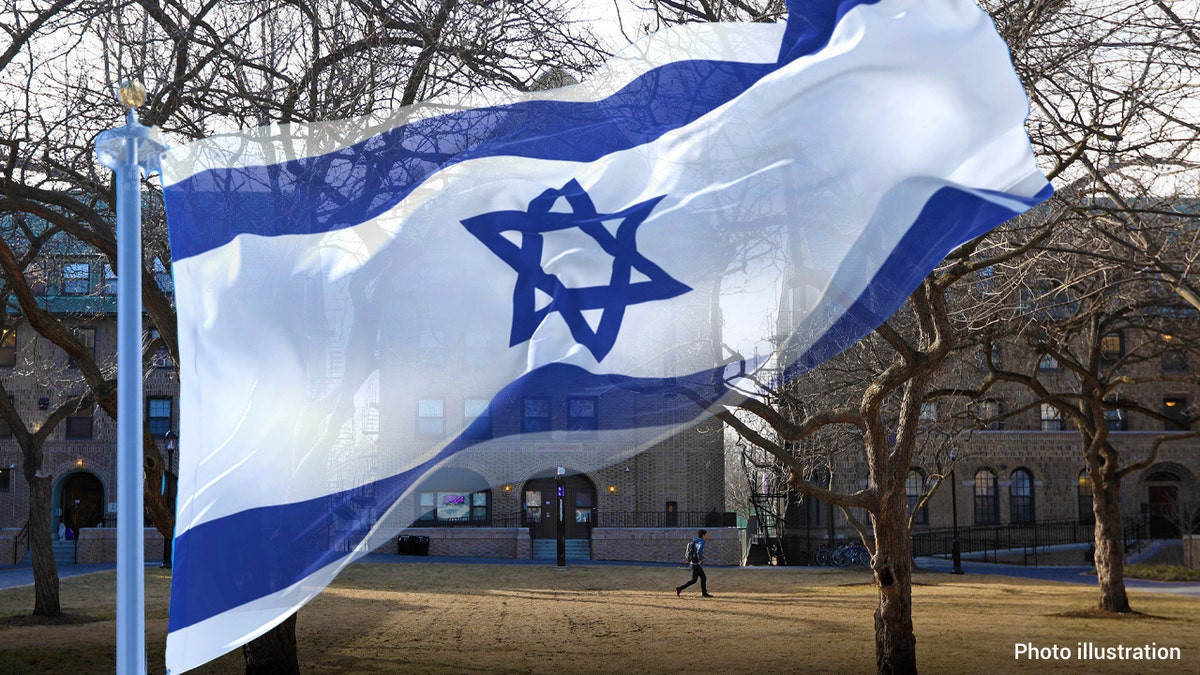Northwestern University in Illinois has announced the creation of new educational programs on antisemitism, Islamophobia, and the Middle East, initiatives it hopes will cool a scorching campus climate.
In a message to the school community President Michael Schill said the programs include one on “religious literacy,” the aim of which is an “integration of antisemitism and Islamophobia.” It will be led by the Institutional Diversity and Inclusion Office. Other programs which focus exclusively on antisemitism will be mandatory for all new and returning students. Additionally, the university will host a series of lectures on both antisemitism and Islamophobia, as well as “the history and politics of the conflict in the Middle East.”
“We need to ensure every member of our community feels safe. Activities that lead to intimidation and impede an environment where dialogue and education can flourish cannot occur again,” Schill said. “Free expression and academic freedom are the lifeblood of our university, but they must not be used as an excuse for behavior that threatens the core of our mission — a search for enlightenment and knowledge. There is no room on our campus for antisemitism; there is no room for Islamophobia; there is no room for racism and other forms of identity-based hate. Northwestern will not tolerate behavior or speech that harms members of our community.”
Schill added that updates to the school’s disciplinary code are forthcoming.
Northwestern University has struggled to correct an impression that it coddled pro-Hamas protesters and acceded to their demands for a boycott of Israel in exchange for an end to their May encampment. Schill denied during a US congressional hearing held in the spring that he caved. However, critics noted, as part of the deal to end the encampment, Schill agreed to establish a scholarship for Palestinian undergraduates, contact potential employers of students who caused recent campus disruptions to insist on their being hired, create a segregated dormitory hall that will be occupied exclusively by Middle Eastern and North African (MENA) and Muslim students, and form a new advisory committee in which anti-Zionists students and faculty may wield an outsized voice.
Following Schill’s testimony before Congress, the Anti-Defamation League (ADL) called for his resignation, citing the agreement and his confessing to appointing accused antisemites to a task force on antisemitism that ultimately disbanded after its members could not agree on a definition of antisemitism.
In July, a Jewish civil rights group implored Schill to “nullify” the agreement, calling it an “outrageous capitulation to accommodate the demands of antisemitic agitators — who openly espoused vicious antisemitism, assaulted, spat on, and stalked Jewish students and engaged in numerous violations of Northwestern’s codes and policies.”
It added, “Accordingly, this purported agreement not only unlawfully rewards antisemitism but has severely and perhaps irreparably damaged Northwestern’s reputation, but it has also exposed Northwestern to potential liability and jeopardizes it access to federal and state funds.”
Writing in a column published in The Chicago Tribune in May, Schill defended the claims by arguing that the deal struck with anti-Israel activists precluded the possibility of boycotting Israel.
“This resolution — fragile though it might be — was possible because we chose to see our students not as a mob but as young people who are in the process of learning,” Schill wrote. “It was possible because we tried respectful dialogue rather than force. And it was possible because we sought to follow a set of principles, many of which I would argue are core to the tenets of Judaism.”
The Controversy Over the Deal
The deal reached with the protesters has been widely criticized by Jewish groups and others who see it as a capitulation to antisemitism. They argue that the university should not have given in to the protesters’ demands, and that the deal has sent a message that antisemitism is acceptable on campus. Northwestern has defended the agreement, arguing that it was necessary to end the encampment and that it does not endorse the views of the protesters. The university also argues that the agreement does not include any commitment to boycott Israel.
University Defends Deal
In a statement defending the agreement, Northwestern said: “This resolution — fragile though it might be — was possible because we chose to see our students not as a mob but as young people who are in the process of learning. It was possible because we tried respectful dialogue rather than force. And it was possible because we sought to follow a set of principles, many of which I would argue are core to the tenets of Judaism.”
The Future of the University
The controversy over the deal has raised questions about the future of Northwestern University. Some critics have called for Schill to resign, while others have expressed concerns about the university’s commitment to academic freedom and freedom of speech. It remains to be seen how the university will address these concerns and move forward.
The Importance of the Issue
The controversy over the deal at Northwestern is just one example of the growing problem of antisemitism on college campuses. Jewish students and faculty are increasingly facing harassment and discrimination, and there is a growing perception that antisemitism is tolerated, if not encouraged, on some campuses. This is a serious issue that needs to be addressed, and universities need to take steps to ensure that their campuses are safe and welcoming for all students, regardless of their religious or ethnic background.
Addressing the Issue
Universities can address the problem of antisemitism on campus by taking a number of steps. These steps include:
-
Educating students and faculty about antisemitism. This education should include information about the history of antisemitism, the different forms of antisemitism, and the importance of combating antisemitism.
-
Creating a culture of respect and inclusion. This can be done by promoting diversity and inclusion initiatives, creating safe spaces for Jewish students, and holding events that celebrate Jewish culture and heritage.
-
Taking a strong stand against antisemitism. When incidents of antisemitism occur, universities should take swift and decisive action to condemn the behavior and to ensure that the perpetrators are held accountable.
The issue of antisemitism on college campuses is a complex one, and there is no easy solution. However, by taking steps to address the problem, universities can help to create a more welcoming and inclusive environment for all students.
The Future of Northwestern
It remains to be seen how Northwestern University will respond to the criticism and controversy surrounding the deal with the protesters. The university has a long history of commitment to academic freedom and freedom of speech, and it is important that it upholds these values while also ensuring that its campus is a safe and inclusive environment for all students.
The Importance of Dialogue
The controversy at Northwestern highlights the importance of dialogue and understanding in addressing complex issues like antisemitism. Universities have a responsibility to create spaces where students can engage in respectful and productive conversations about these issues. This dialogue is essential to building a more inclusive and equitable society.
Conclusion
The events at Northwestern University are a reminder of the importance of addressing antisemitism and other forms of hate on college campuses. Universities need to take a strong stand against antisemitism and create a culture of respect and inclusion. By doing so, they can help to ensure that their campuses are safe and welcoming for all students, regardless of their religious or ethnic background. The controversy at Northwestern is a reminder that we must continue to work towards a more just and equitable society.

















